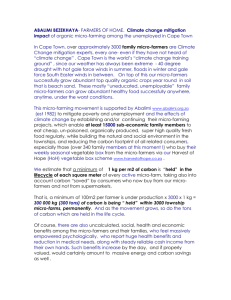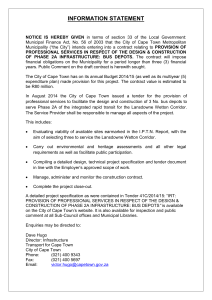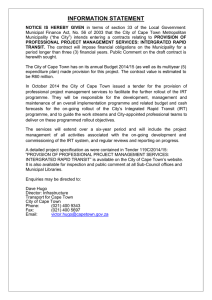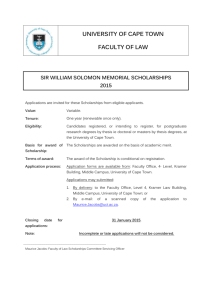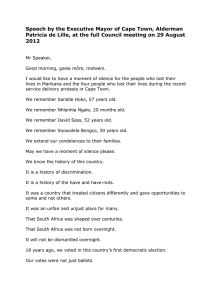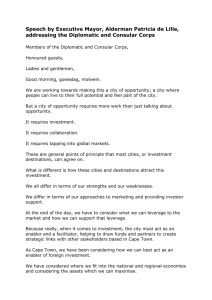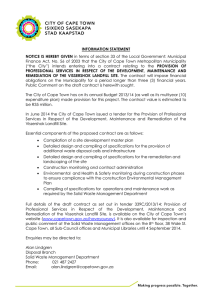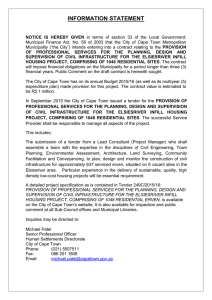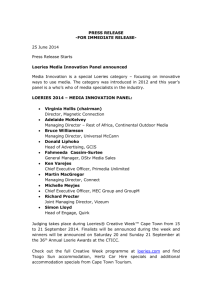Researching urban agriculture: A social development approach
advertisement
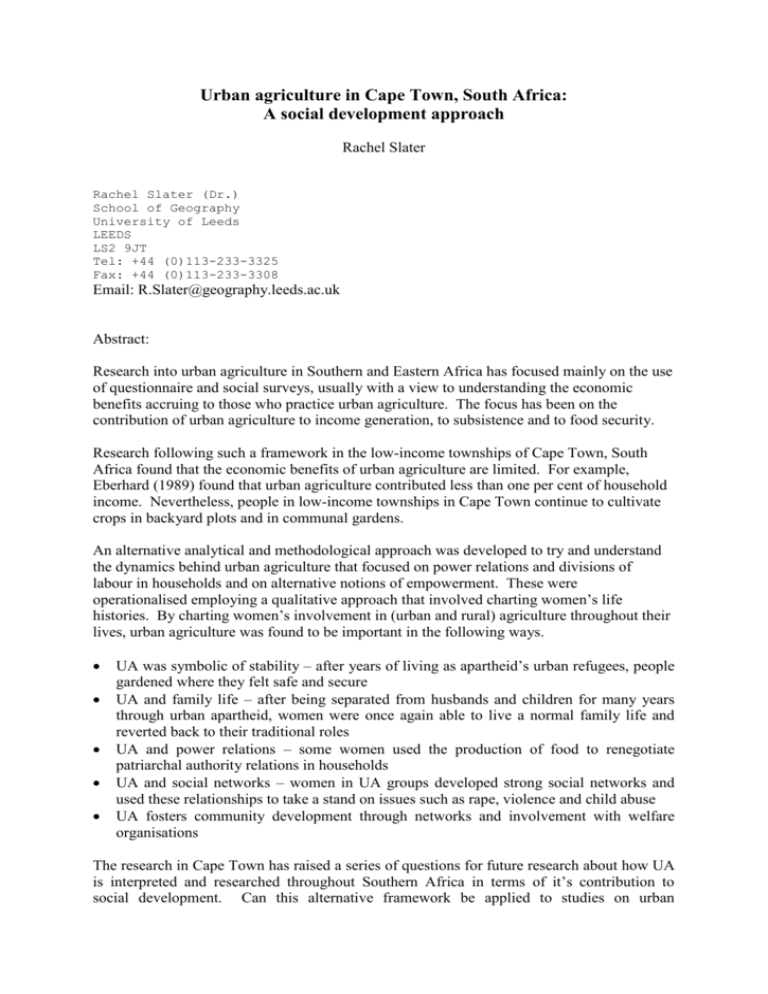
Urban agriculture in Cape Town, South Africa: A social development approach Rachel Slater Rachel Slater (Dr.) School of Geography University of Leeds LEEDS LS2 9JT Tel: +44 (0)113-233-3325 Fax: +44 (0)113-233-3308 Email: R.Slater@geography.leeds.ac.uk Abstract: Research into urban agriculture in Southern and Eastern Africa has focused mainly on the use of questionnaire and social surveys, usually with a view to understanding the economic benefits accruing to those who practice urban agriculture. The focus has been on the contribution of urban agriculture to income generation, to subsistence and to food security. Research following such a framework in the low-income townships of Cape Town, South Africa found that the economic benefits of urban agriculture are limited. For example, Eberhard (1989) found that urban agriculture contributed less than one per cent of household income. Nevertheless, people in low-income townships in Cape Town continue to cultivate crops in backyard plots and in communal gardens. An alternative analytical and methodological approach was developed to try and understand the dynamics behind urban agriculture that focused on power relations and divisions of labour in households and on alternative notions of empowerment. These were operationalised employing a qualitative approach that involved charting women’s life histories. By charting women’s involvement in (urban and rural) agriculture throughout their lives, urban agriculture was found to be important in the following ways. UA was symbolic of stability – after years of living as apartheid’s urban refugees, people gardened where they felt safe and secure UA and family life – after being separated from husbands and children for many years through urban apartheid, women were once again able to live a normal family life and reverted back to their traditional roles UA and power relations – some women used the production of food to renegotiate patriarchal authority relations in households UA and social networks – women in UA groups developed strong social networks and used these relationships to take a stand on issues such as rape, violence and child abuse UA fosters community development through networks and involvement with welfare organisations The research in Cape Town has raised a series of questions for future research about how UA is interpreted and researched throughout Southern Africa in terms of it’s contribution to social development. Can this alternative framework be applied to studies on urban agriculture in other urban areas outside South Africa? Are different narratives of the meanings attached to urban agricultural activity generated through life history and qualitative research?


